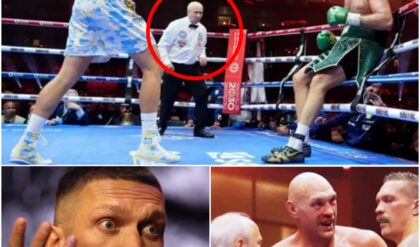
LeBron James is said to have a problem with the poor people who are squatting in his ultra-rich elite neighborhood, where Jennifer Lopez and Ben Affleck also live, just door-steps away from his $36.8 million mansion in Beverly Hills.
People desperate for housing to survive the then-upcoming colder winter months took to a five million mansion near his property in October, but the multiple-time NBA champion was not a fan at all.
LeBron James controversial remark on Instagram live with Diddy comes to light
The 39-year-old was reportedly “very concerned,” about the squatters according to Curbed following claims that they were doing drugs and sex, with the Italian mafia also said to be involved.
Other disruptions included blocked roads, noise disruption and anti-social behavior not restricted to just that property at 1316 Beverly Grove Place, but also other properties such as that of the producer who desired to remain unnamed.
So, they reported it to the police and formed a neighborhood watch group chat on social media, but received an awful shock when it appeared that the incumbent of the property produced a lease to stay there.
The man in charge of the property, named Morgan Gargiuolo, also had a bill in his name and produced a valid driver’s license with the address of the property on it, so it seems as though he could be there to stay.
What is squatting and is it legal?
Squatting generally refers to the act of occupying an abandoned or unoccupied space or building, typically without the owner’s permission. This can involve living in a vacant house, apartment, or other property without legal authorization.
Squatting is often done out of necessity by individuals who are homeless or cannot afford traditional housing. Sometimes, squatting is also used as a form of political protest or activism, where individuals occupy unused or neglected properties to draw attention to housing issues or advocate for alternative uses of space.
The legality of squatting varies greatly depending on local laws and regulations, with some jurisdictions allowing it under certain circumstances while others consider it trespassing or illegal occupation of property.
In California, squatting can be a criminal offense in certain aspects such as if it violates trespassing laws.
California has specific laws governing the rights and responsibilities of landlords and tenants. If a person occupies a property without the landlord’s permission, they are generally not considered tenants under the law, and the landlord can take legal action to remove them.
So, if a property owner wants to do so, they typically need to go through the formal eviction process, even if the squatters do not have a lease or rental agreement. This process involves serving the squatters with a notice to vacate and, if they refuse to leave, obtaining a court order for eviction.
Squatting without permission on someone else’s property may be considered trespassing under California law, offering another avenue for landlords/ladies to move a squatter on.
Trespassing is a criminal offense, and property owners have the right to take legal action to remove trespassers from their property.
News
Brittany Renner hits out and REVEALS prestigious list of NBA stars she’s slept with (VIDEO)
Renner’s been linked with Colin Kaepernick, James Harden, Ben Simmons and Jamal Murray, and shares a child with P.J. Washington. Model Brittany Renner has been linked with more sportsmen than a team picking first in the draft, and she’s now revealed what…
Caitlin Clark Reveals Her “Honest” Feelings About Getting Revenge Against Angel Reese And LSU
Caitlin Clark press conference. For alomst a year, Iowa Hawkeyes superstar Caitlin Clark had to sit on the fact that the LSU Tigers got the best of her and her teammates in the National Championship game. On Monday, Caitlin Clark got a…
USWNT Legend Megan Rapinoe Throws Shade At Caitlin Clark’s Impact On Women’s Basketball
USWNT Legend Megan Rapinoe Throws Shade At Caitlin Clark’s Impact On Women’s Basketball Megan Rapinoe and Caitlin Clark (Photos via Getty Images) Megan Rapinoe, the retired USWNT star, said she’s a ‘big’ fan of Caitlin Clark and plans to see her and…
“You’ve Been Talking SH*T to Me at My House”- Shaquille O’Neal Discusses Handling Disputes With Kobe Bryant
“You’ve Been Talking SH*T to Me at My House”- Shaquille O’Neal Discusses Handling Disputes With Kobe Bryant Shaquille O’Neal, Kobe Bryant (Image source Getty Images) During a recent episode of the podcast, ‘The Old Man and the Three’ hosted by…
Someone Asked Adult Film Stars Which NFL And NBA Players They’ve Had S-x With And They All Named The Same Team (VIDEO)
It should not be shocking that athletes would be in the messages of s-xy women, and it doesn’t matter what that woman does for a living, the men will come calling. During a recent pornstar event, one…
Dwyane Wade Took A Huge Bite of Gabrielle Union’s Booty While On Vacation (VIDEO)
Wade, a retired NBA star, and his wife, actress Gabrielle Union, are enjoying each other’s company. The married couple packed on the PDA during their yearly Wade World Tour vacation. The 49-year-old actress took to Instagram on Monday to share a video…
End of content
No more pages to load











